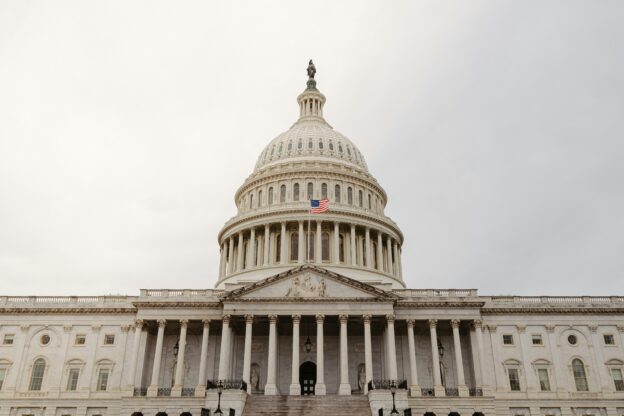Thoughts on Friends, Politics, Church, and a Faithful Witness by Rob Haynes

Conduct yourselves wisely toward outsiders, making the most of the time. Let your speech always be gracious, seasoned with salt, so that you may know how you ought to answer everyone.
Colossians 4:5–6
Growing up, I was admonished to always keep public discussion polite. Conversations that involved politics, religion, and the like were forbidden except in the closest of family circles. However, there are times when we need to have difficult conversations with family or friends. These can even be conducted in a way that draws others deeper into a relationship with Christ.
The passage above comes in the middle of an appeal to the Colossians to conduct themselves in such a way that outsiders to the church want to know more about Jesus. Paul tells them that their conversations should be so gracious and wise that the words would taste good for both the speaker and the hearer. We live in a time when people need such delicious discussions, rather than the sour and bitter ones that are all too common. Seasoned speech, as Paul describes, can be evangelism. This can be true of even the most difficult of topics: Politics among friends, those who are both inside and outside the church.
Politics is one area that is frequently divisive to the point of calamity, but doesn’t have to be. The political terrain can be treacherous for many to navigate, leading to all sorts of tenuous arguments online and in-person. Family members and friends find themselves involved in spirited, even heated, conversations around matters that should not necessarily lead to the deep divisions which have developed between them. The Church has not been immune from such difficulties. How can we bear faithful witness to the goodness of God amid such a landscape?
Much of the political rhetoric today now takes a war-like tone. (I could offer several examples, but instead I will encourage you to listen for yourself as you gather). In war, one seeks to claim a decisive victory in such a manner that obliterates the enemies, at any cost. To do so, one gathers as many allies as possible. Allies are used as a means to an end: to help defeat a common enemy. Allies may not agree on every matter, but they can agree that the enemy needs to be removed and that as many resources as possible should be utilized to that goal.
However, politics did not always work that way. There was a time when friends could also be political opposites. Now, friendship and politics rarely seem to meet. This can hurt the Church’s witness. There are many factors that have contributed to this shift. Things like cheaper and faster travel helped bring about a division of friendship. There was a time when elected officials could not go home every time the government took a break. As a result, they moved their families to the capital city. That meant that the families, no matter what the political affiliation, mingled together in a shared community life. Bills and policies were decided in the restaurants, parks, and community centers. They may have had deep differences on the congressional floor, but they could be worked out as families and friends shared life together. This sort of posture is a far cry from one who gathers allies to go to war with a perceived enemy.
In the Upper Room, Jesus told the disciples that he no longer considered them servants, but now friends. He didn’t say they are mere allies, but friends. A friend can be hard to define. However, we can affirm that a friend does not use someone else merely for personal gain, as with an ally. Rather, friends work for the best in one another and a common good. A friend looks for the Image of God in the other person to see what can be learned about God’s work in our lives. A friend joins in your suffering because this is a foundation of our life in Christ. “We are confident that as you share in our sufferings, you will also share in the comfort God gives us.” 2 Corinthians 1:7 NLT
How does this relate to today’s politics and the Church’s witness? People who may be “outside the church” long for an example of how to live together in these difficult times and without the exhausting war-like posturing. The Church’ witness frequently begins with the individual Christian, so here are some practical steps to provide such a witness.
- Let’s reduce the news noise. Let’s carefully examine our consumption of social media and the 24-hour news cycle. These platforms exist to generate revenue. That means they need eyeballs on the screen, and riling up their audiences is a good way to keep people looking at those screens. I do not mean to suggest that we should be uninformed. Rather, let’s not get sucked in to overheated discussions which merely feed on themselves.
- Speak privately. When having political and/or difficult conversations with others, look them in the eye—and one-on-one. The vast majority of communication in non-verbal. I can recall several conversations with our children when they were teens about the perceptions of tone of voice in a text message. It just can’t be done. Text messages, comments, and threads can often lead to more hurt and confusion. Give them up for a face-to-face conversation. And do it with just the two of you. There is something about a group that allows us to drift into seeking allies who will agree with our point of view rather than the best interest of a mutually edifying discussion. The “mob mentality” can be intoxicating. (Matthew 18 is clear on how we are to handle differences this way.)
- Trust God first, not your opinion. Let’s have the courage to admit that you don’t have the exact and only answer to every political question. Often there are all sorts of complexities in political matters we may not see. However, the Lord, who wants to bring about the Kingdom on Earth, does. Let’s seek God’s answer rather than campaign for our own.
These seem like a good starting place for some conversations that are filled with good salt. Our conversations can be winsome rather than divisive, redemptive rather than combative, embraced rather than avoided. That seems like a gracious and wise way to treat both our friends and our politics, for the sake of the Kingdom.
Subscribe
Get articles about mission, evangelism, leadership, discipleship and prayer delivered directly to your inbox – for free
Related Posts













